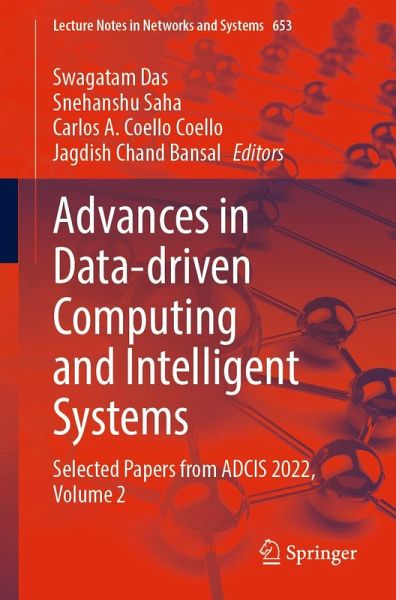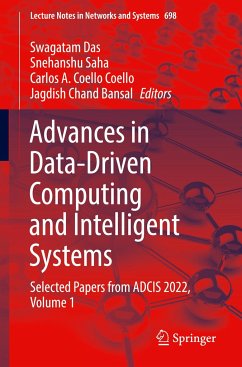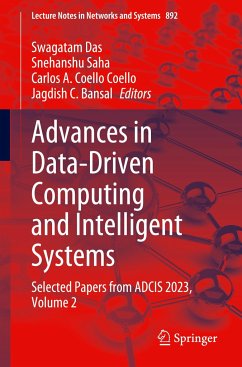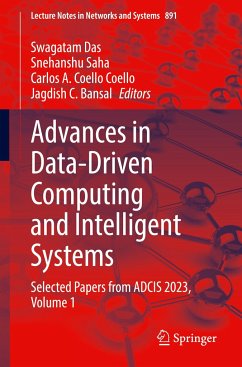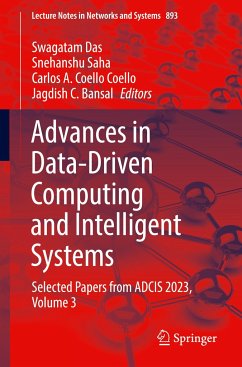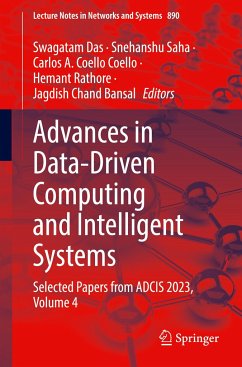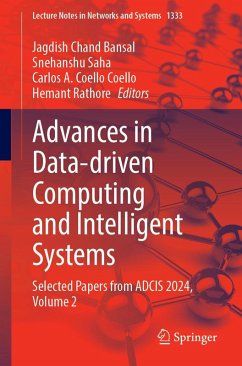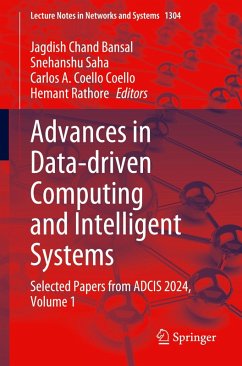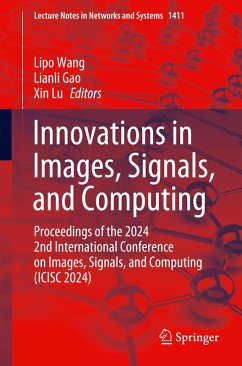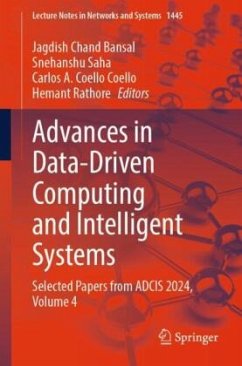Swagatam Das received the B. E. Tel. E., M. E. Tel. E (Control Engineering specialization) and Ph. D. degrees, all from Jadavpur University, India, in 2003, 2005, and 2009 respectively. Swagatam Das is currently serving as an associate professor and Head of the Electronics and Communication Sciences Unit of the Indian Statistical Institute, Kolkata, India. His research interests include evolutionary computing and machine learning. Dr. Das has published more than 300 research articles in peer-reviewed journals and international conferences. He is the founding co-editor-in-chief of Swarm and Evolutionary Computation, an international journal from Elsevier. He has also served as or is serving as the associate editors of the IEEE Transactions on Cybernetics, Pattern Recognition (Elsevier), Neurocomputing (Elsevier), Information Sciences (Elsevier), IEEE Trans. on Systems, Man, and Cybernetics: Systems, and so on. He is an editorial board member of Information Fusion (Elsevier), Progress in Artificial Intelligence (Springer), Applied Soft Computing (Elsevier), Engineering Applications of Artificial Intelligence (Elsevier), and Artificial Intelligence Review (Springer). Dr. Das has 25,000+ Google Scholar citations and an H-index of 76 till date. He has been associated with the international program committees and organizing committees of several reputed international conferences including NeurIPS, AAAI, AISTATS, ACM Multimedia, BMVC, IEEE CEC, GECCO, etc. He has acted as guest editors for special issues in journals like IEEE Transactions on Evolutionary Computation and IEEE Transactions on SMC, Part C. He is the recipient of the 2012 Young Engineer Award from the Indian National Academy of Engineering (INAE). He is also the recipient of the 2015 Thomson Reuters Research Excellence India Citation Award as the highest cited researcher from India in Engineering and Computer Science category between 2010 to 2014. Snehanshu Saha holds Master's Degree in Mathematical and Computational Sciences at Clemson University, USA and Ph.D. from the Department of Applied Mathematics at the University of Texas at Arlington in 2008. He was the recipient of the prestigious Dean's Fellowship during PhD and Summa Cum Laude for being in the top of the class. After working briefly at his Alma matter, Snehanshu moved to the University of Texas El Paso as a regular full-time faculty in the Department of Mathematical Sciences, University of Texas El Paso. Currently, He is a professor of Computer Science and Engineering at PES University since 2011 and heads the Center for AstroInformatis, Modeling and Simulation. He is also a visiting Professor at the department of Statistics, University of Georgia, USA and BTS Pilani, India. He has published 90 peer-reviewed articles in top-tier international journals and conferences and authored three text books on Differential Equations, Machine Learning and System Sciences respectively. Dr. Saha is an IEEESenior member, ACM Senior Member, Vice Chair-International Astrostatistics Association and Chair, IEEE Computer Society Bangalore Chapter and Fellow of IETE. He's Editor of the Journal of Scientometric Research. Dr Saha is the recipient of PEACE Award for his foundational contributions in Machine Learning and AstroInformatics. Dr. Saha's current and future research interests lie in Data Science, Astronomy and theory of Machine Learning. Carlos A. Coello Coello (Fellow, IEEE) received the Ph.D. degree in computer science from Tulane University, New Orleans, LA, USA, in 1996. He is currently a Professor with Distinction (CINVESTAV-3F Researcher), Computer Science Department, CINVESTAV-IPN, Mexico City, Mexico. He has authored and coauthored over 500 technical papers and book chapters. He has also co-authored the book Evolutionary Algorithms for Solving Multiobjective Problems (2nd ed., Springer, 2007) and has edited 3 more books with publishers such as World Scientific and Springer. His publications currently report over 60000 citations in Google Scholar (his H-index is 96). His major research interests are evolutionary multiobjective optimization and constraint-handling techniques for evolutionary algorithms. He has received several awards, including the National Research Award (in 2007) from the Mexican Academy of Science (in the area of exact sciences), the 2009 Medal to the Scientific Merit from Mexico City's congress, the Ciudad Capital: Heberto Castillo 2011 Award for scientists under the age of 45, in Basic Science, the 2012 Scopus Award (Mexico's edition) for being the most highly cited scientist in engineering in the 5 years previous to the award and the 2012 National Medal of Science in Physics, Mathematics and Natural Sciences from Mexico's presidency (this is the most important award that a scientist can receive in Mexico). He also received the Luis Elizondo Award from the Tecnológico de Monterrey in 2019. Additionally, he is the recipient of the 2013 IEEE Kiyo Tomiyasu Award, "for pioneering contributions to single- and multiobjective optimization techniques using bioinspired metaheuristics", of the 2016 The World Academy of Sciences (TWAS) Award in "Engineering Sciences", and of the 2021 IEEE Computational Intelligence Society Evolutionary Computation Pioneer Award. Since January 2011, he is an IEEE Fellow. He is currently the Editor-in-Chief of the IEEE Transactions on Evolutionary Computation. Dr. Jagdish Chand Bansal is an Associate Professor at South Asian University New Delhi and Visiting Faculty at Maths and Computer Science, Liverpool Hope University UK. Dr. Bansal has obtained his Ph.D. in Mathematics from IIT Roorkee. Before joining SAU New Delhi he has worked as an Assistant Professor at ABV- Indian Institute of Information Technology and Management Gwalior and BITS Pilani. His Primary area of interest is Swarm Intelligence and Nature Inspired Optimization Techniques. Recently, he proposed a fission-fusion social structure-based optimization algorithm, Spider Monkey Optimization (SMO), which is being applied to various problems from engineering domain. He has published more than 70 research papers in various international journals/conferences. He is the section of the journal MethodsX published by Elsevier. He is the series editor of the book series Algorithms for Intelligent Systems (AIS) and Studies in Autonomic, Data-driven and Industrial Computing (SADIC) published by Springer. He is the editor in chief of International Journal of Swarm Intelligence (IJSI) published by Inderscience. He is also the Associate Editor of Engineering Applications of Artificial Intelligence (EAAI) and ARRAY published by Elsevier. He is the general secretary of Soft Computing Research Society (SCRS). He has also received Gold Medal at UG and PG level.
